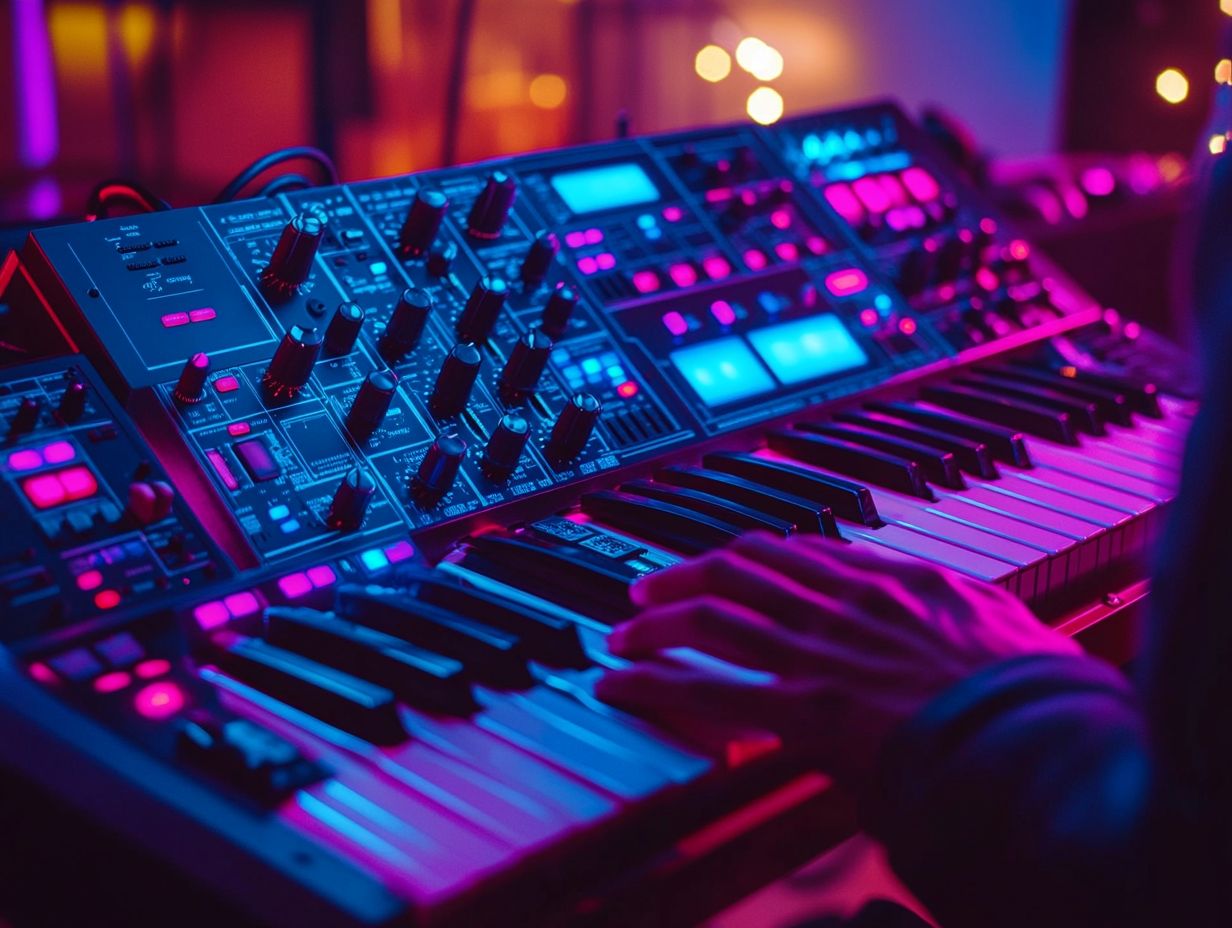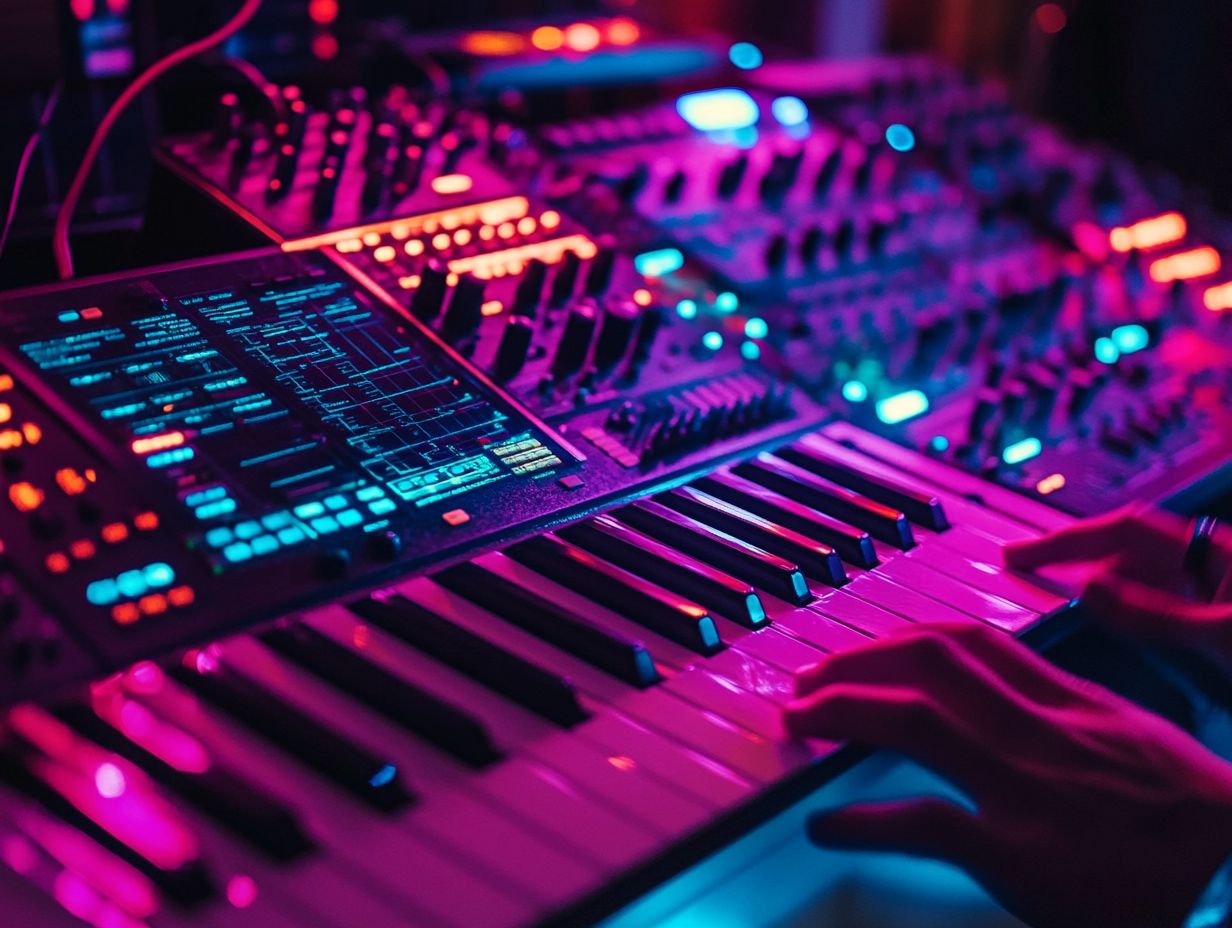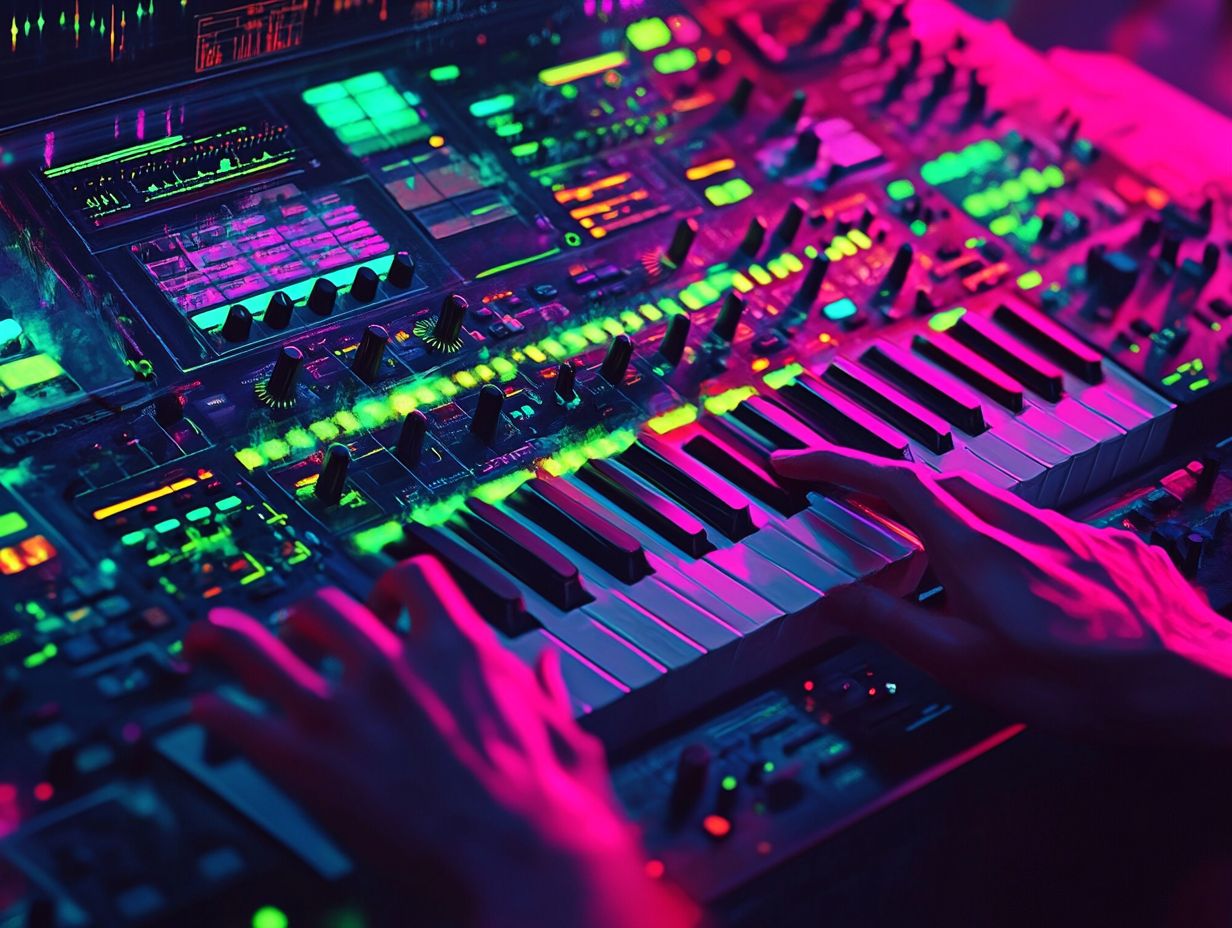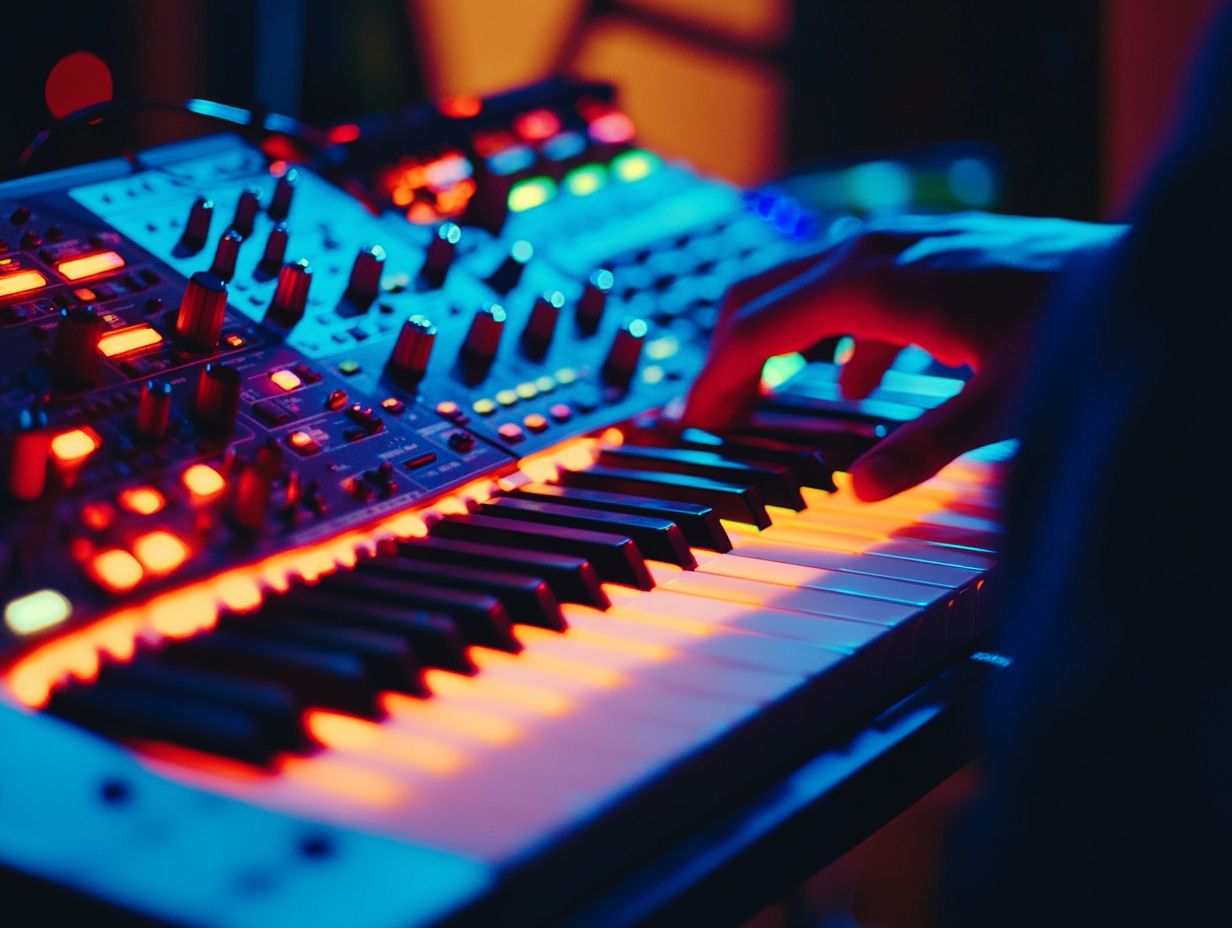Your training includes data up to October 2023.
Contents
Defining the Digital Revolution

The digital revolution has significantly impacted various industries, particularly transforming the music industry through groundbreaking innovations in music production, sound design, and audio engineering.
This technological transformation has streamlined production processes, democratized access to music creation tools, and enabled aspiring artists to explore their creativity from home studios. It has also given rise to platforms for music distribution that allow musicians to reach global audiences without relying on traditional record labels, fostering a diverse and dynamic global music culture.
The effects of these advancements are evident in the rise of independent musicians who thrive in this new landscape, where the boundaries between producers and artists are increasingly blurred. The music composition scene has become more collaborative, with creators from diverse backgrounds coming together to produce innovative sounds that reflect a blend of genres and cultural influences.
The Rise of Synthesizers
The rise of synthesizers marks a pivotal moment in the evolution of music, enabling musicians to explore new realms of sound design and composition.
From the earliest analog synthesizers that laid the groundwork for modern electronic music to today’s digital synthesizers, the evolution of these instruments has profoundly impacted various music genres, including pop, rock, techno, and ambient music.
As synthesizers became more accessible, they sparked a wave of sonic experimentation and innovation, give the power toing artists to harness the power of sound manipulation and modular synthesizers in their creative processes.
This infographic illustrates the different types of synthesizers and highlights the significant influence these instruments have had on music performance and music technology as a whole.
History and Development of Synthesizers

The history and development of synthesizers can be traced back to the early 20th century, marking a significant evolution in musical innovation and audio engineering. Pioneers such as Robert Moog and Don Buchla played crucial roles in creating iconic synthesizers that have shaped both music production and composition.
Initially rooted in analog technology, synthesizers transitioned into the digital realm, introducing features like MIDI compatibility and advanced sound synthesis techniques. This evolution not only expanded creative possibilities for musicians but also led to the emergence of genres that thrive on synthesized sounds.
As technology progressed through the 1970s and 1980s, synthesizers became more accessible, allowing a broader range of artists to experiment with electronic music. The introduction of polyphony enabled multiple notes to be played simultaneously, enriching compositions and giving rise to complex musical layers.
During this period, the distinctive sound of synthesizers influenced pop, rock, and even classical music, encouraging musicians to explore beyond traditional instruments. The integration of computers into music production tools ushered in a new era of sound design, forever transforming the landscape of audio engineering and paving the way for unique and innovative tracks that continue to resonate with listeners today.
Impact of Synthesizers on Music
The impact of synthesizers on music has been transformative, fundamentally altering the landscape of various music genres and expanding the boundaries of creative expression.
Synthesizers allow musicians to manipulate sound in ways that were previously unimaginable, leading to the emergence of new styles such as techno, ambient music, and various genre fusions.
As influential artists have embraced synthesizers, they have not only reshaped their sonic identities but also contributed to significant cultural shifts within the music industry.
From live performances to studio recordings, the synthesizer has become an essential tool for sound exploration and musical collaboration.
Changing the Sound and Style of Music

Synthesizers have significantly transformed the sound and style of music across various genres, particularly in electronic music. They enable musicians to create original soundscapes, experiment with sound design, and reimagine traditional music composition and performance.
This innovation has been facilitated by the ability to program sounds and manipulate waveforms, resulting in distinctly new musical styles that blend innovative production techniques with classic influences. Musicians can explore the intricacies of layering and textural complexity, leading to the emergence of subgenres such as synth-pop, trance, and ambient music.
The incorporation of synthesizers into music production has give the power toed artists to push the boundaries of creativity, producing everything from sweeping atmospheric backgrounds to punchy rhythmic bass lines. The ongoing evolution of synthesizers, including advancements in software and hardware, continues to inspire musical innovation.
This evolution not only enhances sound design but also transforms other aspects of performance, enabling artists to connect with their audiences in new and exciting ways.
Influential Artists and Songs
Synthesizers have played a pivotal role in shaping the music industry, giving rise to influential artists and iconic songs that have transformed music history and culture. Notable artists such as Kraftwerk, Depeche Mode, and Daft Punk have crafted legendary tracks using synthesizers, which not only defined emerging genres but also resonated with a global audience. These pioneering musicians pushed the creative boundaries of music, paving the way for an explosion of innovation in sound production.
In the late 20th century, synthesizer sounds began to permeate mainstream pop music, propelled by the groundbreaking work of these artists. For instance, Kraftwerk’s iconic track “Trans-Europe Express” established the foundation for electronic music with its mechanical rhythms and intricate melodies, influencing generations to come. Depeche Mode’s “Enjoy the Silence” masterfully blended human emotion with synthetic sounds, resulting in an enduring classic. Meanwhile, Daft Punk’s “One More Time” captured the joyous and celebratory essence of what synthesizers could produce, solidifying their place in the hearts of music lovers and inspiring countless artists to explore the unique textures that this instrument offers.
Challenges and Criticisms of Synthesizers

Despite their significant influence, synthesizers have encountered various challenges and criticisms within the music community, particularly regarding authenticity and creativity. Critics argue that an overreliance on digital technology can overshadow musicianship and detract from the organic qualities of live performance.
These debates often focus on the perceived disconnect between the artist and their instrument when using synthesizers, prompting discussions about the value of traditional techniques in music composition and audio engineering.
Debates on Authenticity and Creativity
Debates surrounding authenticity and creativity in music frequently center on the use of synthesizers, particularly in discussions comparing digital and analog instruments. Proponents of analog synthesizers argue that the physicality of manipulating knobs and sliders fosters a more intimate interaction with sound. In contrast, digital synthesizers offer greater versatility and accessibility.
This tension raises important questions about what constitutes ‘real’ musicianship and what defines meaningful music performance in today’s technological landscape. As artists navigate this dynamic, they must balance their individual preferences with the expectations of their audience and the wider music industry.
Many musicians find themselves caught between the perceived authenticity of the rich, warm tones produced by analog synths and the precision and limitless possibilities afforded by digital synths. Additionally, the ease of sound replication, editing, and manipulation has altered the music creation process, leading to discussions about the originality of musical compositions.
This debate extends beyond personal preference, as it influences production techniques and shapes the evolution of musical genres. Ultimately, the choice between analog and digital synthesizers reflects broader themes of innovation versus tradition and raises questions about what it means to create authentic art in an increasingly artificial world.
Future of Synthesizers in Music
The future of synthesizers in music is promising, thanks to the continuous evolution and innovation in music technology. With the emergence of artificial intelligence and machine learning, synthesizers are expected to become increasingly advanced, offering greater capabilities for sound generation and manipulation.
This evolution will provide artists with new tools to explore genres and styles that are not feasible today.
Continued Evolution and Innovation
The future of synthesizers is poised to revolutionize both music creation and listening experiences as generative music and algorithmic composition gain prominence. As hardware and software synthesizers continue to advance, they will give the power to musicians to experiment with production techniques and soundscapes in ways that are hard to imagine today.
This evolution will enhance the listening experience and expand the boundaries of musical genres. The contributions of artificial intelligence and machine learning will be crucial, providing synthesizers with the ability to offer sound creation options tailored to each artist’s individual preferences.
Moreover, integration with cloud-based platforms may facilitate collaborative music-making across the globe, effectively eliminating geographic barriers. Consequently, we can expect a richer diversity of musical styles as new producers leverage these tools to push creative boundaries and explore complex harmonic structures, delivering listeners a constantly evolving and surprising experience.
Predictions for the Industry
Predictions for the music industry indicate that synthesizers will play an increasingly vital role in artist development and music technology as the demand for unique sounds and innovative compositions continues to rise.
The integration of synthesizers in live coding and interactive music experiences has the potential to redefine how artists collaborate and engage with their fans, ultimately shaping the future of musical expression.
As educational tools improve, the accessibility of synthesizers is likely to nurture new talent and creativity within the global music culture. As these electronic instruments evolve, they may give the power to a diverse range of musicians to break traditional barriers in sound production.
The trend towards collaborative platforms will likely result in artists from various genres joining forces to explore uncharted sonic territories, leveraging the versatility of synthesizers to create groundbreaking music.
Furthermore, the increasing popularity of home studios makes it easier for aspiring musicians to experiment with synthesis, thereby democratizing the music creation process. This shift not only broadens the landscape for emerging artists but also encourages seasoned musicians to experiment with new styles, ultimately enriching the overall fabric of the music industry.
